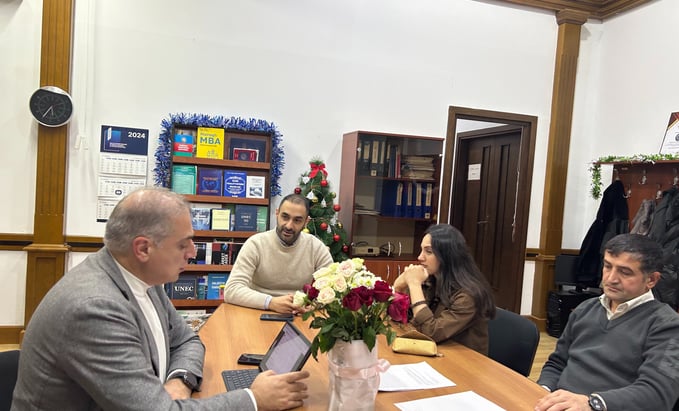Roundtable Discusses Project Management in the EU: Current Challenges
Roundtable


A roundtable on "Risk Management in the Administration of European Union Projects" was held at Azerbaijan State University of Economics (UNEC) within the framework of the "Effective Project Management in the European Union: Best Practices and Case Studies" (EUPMO) project, implemented under the Jean Monnet Module of the Erasmus+ program.
The event brought together project managers, experts, researchers, and stakeholders involved in EU-funded projects to discuss best practices, challenges, and innovative solutions in risk management.
During the discussions, participants analyzed the key risks commonly encountered in the implementation of EU projects, including financial uncertainties, regulatory compliance, stakeholder coordination, and unforeseen external factors. The roundtable also explored methodologies for risk assessment, mitigation strategies, and proactive approaches to ensure project sustainability and efficiency.
Experts highlighted the importance of developing strategic frameworks to address potential risks at every stage of a project—from planning and proposal writing to execution, monitoring, and final reporting. They emphasized that effective risk management enhances the overall impact and success rate of projects by minimizing disruptions and ensuring compliance with EU standards and funding requirements.
The session also served as a platform for exchanging views on innovative risk management approaches, such as the use of digital tools for project monitoring, adaptive management techniques, and real-time risk assessment models. Participants shared insights from previous experiences, discussing case studies of successful EU projects that effectively navigated complex risk landscapes.
The roundtable concluded with key takeaways on enhancing institutional capacity for risk management in EU-funded projects and fostering a culture of proactive problem-solving within higher education institutions and research organizations. Attendees agreed on the necessity of continuous learning, collaboration, and knowledge exchange to improve the efficiency and effectiveness of project implementation in alignment with European best practices.


